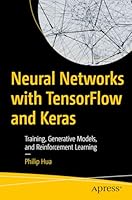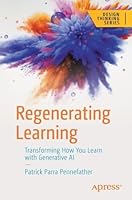
Python Playground: Geeky Projects for the Curious Programmer
- Length: 352 pages
- Edition: 1
- Language: English
- Publisher: No Starch Press
- Publication Date: 2015-11-07
- ISBN-10: 1593276044
- ISBN-13: 9781593276041
- Sales Rank: #62825 (See Top 100 Books)
Python is a powerful programming language that’s easy to learn and fun to play with. But once you’ve gotten a handle on the basics, what do you do next?
Python Playground is a collection of imaginative programming projects that will inspire you to use Python to make art and music, build simulations of real-world phenomena, and interact with hardware like the Arduino and Raspberry Pi. You’ll learn to use common Python tools and libraries like numpy, matplotlib, and pygame to do things like:
- Generate Spirograph-like patterns using parametric equations and the turtle module
- Create music on your computer by simulating frequency overtones
- Translate graphical images into ASCII art
- Write an autostereogram program that produces 3D images hidden beneath random patterns
- Make realistic animations with OpenGL shaders by exploring particle systems, transparency, and billboarding techniques
- Construct 3D visualizations using data from CT and MRI scans
- Build a laser show that responds to music by hooking up your computer to an Arduino
Programming shouldn’t be a chore. Have some solid, geeky fun with Python Playground.
Table of Contents
Part I: Warming Up
Chapter 1: Parsing iTunes Playlists
Chapter 2: Spirographs
Part II: Simulating Life
Chapter 3: Conway’s Game of Life
Chapter 4: Generating Musical Overtones with the Karplus-Strong Algorithm
Chapter 5: Boids: Simulating a Flock
Part III: Fun with Images
Chapter 6: ASCII Art
Chapter 7: Photomosaics
Chapter 8: Autostereograms
Part IV: Enter 3D
Chapter 9: Understanding OpenGL
Chapter 10: Particle Systems
Chapter 11: Volume Rendering
Part V: Hardware Hacking
Chapter 12: Introduction to the Arduino
Chapter 13: Laser Audio Display
Chapter 14: A Raspberry Pi–Based Weather Monitor
Appendix A: Software Installation
Appendix B: Basic Practical Electronics
Appendix C: Raspberry Pi Tips & Tricks







